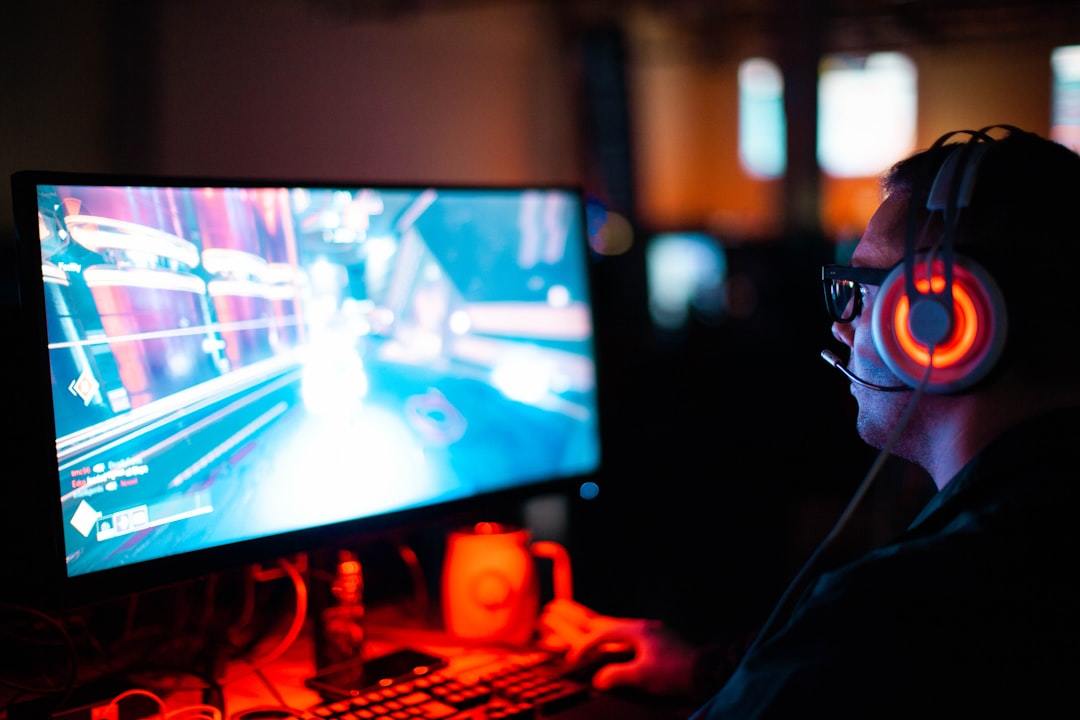The use of AI in video game development has come a long way. While many associate this concept with modern innovations like Chat GPT, artificial intelligence has played a role in video games since the 1950s. This technology can be seen from the early days of simple game mechanics, like Pac-Man’s iconic ghosts, to the complex, immersive worlds we experience in games today.
With generative AI tools, developers have access to more sophisticated resources than ever before, allowing for the creation of smarter characters, vast landscapes, and personalized gaming experiences. But as with any technological revolution, the rising role of AI in video games also poses new challenges for the gaming industry, both technical and ethical.
Table Of Contents:
- The Impact of AI on Video Games
- The Future of Video Game Development with AI
- FAQs about ai in video game
- Conclusion
The Impact of AI on Video Games
AI in video game development has already revolutionized several key aspects of gaming. One such area is character behavior. AI in video games can create smarter and more realistic non-player characters (NPCs) that add depth and challenge to games. Moreover, these advancements directly impact the player experience by creating dynamic and engaging gameplay.
Elevating Non-Player Characters (NPCs)
While NPCs are common in many game designs, in the past, they’ve often been criticized for their limited and repetitive actions. Newer games incorporate advanced artificial intelligence machine learning AI techniques to make NPCs react more naturally and interestingly to the game world and player choices. Ubisoft, the developers of games like Assassin’s Creed, launched a tool called Ghostwriter, which leverages text-generating AI to assist writers in developing diverse and engaging dialogue for their NPCs. Similarly, their speech-to-gesture technology, unveiled in 2022, allows NPCs to generate realistic body movements in response to the tone and context of the conversation. This is a significant step toward blurring the lines between human players and AI-controlled characters, enhancing the overall immersive quality of gameplay.
Building Vast and Dynamic Virtual Worlds
AI is transforming individual game elements and changing how entire worlds are crafted. In games like “No Man’s Sky,” procedural content generation creates sprawling landscapes, diverse plants and animals, and even unique atmospheres for each planet. These games can feature 18 quintillion unique variations, creating near-limitless possibilities for exploration. This technique shows how generative AI might offer even more dynamic and personalized game worlds.
These AI-generated worlds could evolve and change, presenting players with new experiences and unexpected situations. Using AI in this way allows developers to create truly massive and engaging game worlds that would be impossible to create by hand. Imagine exploring a constantly shifting landscape or encountering unique creatures never before seen in a video game, all thanks to the power of AI.
Transforming Gameplay
AI in video game development can improve testing during production by simulating various human behaviors and playing styles. This data mining allows for fine-tuned difficulty levels, creating more tailored gaming experiences for different types of players. Imagine a game world where your opponents learn and adapt their tactics based on your actions, or quests are generated specifically for your play style.
This level of personalization is likely to play a greater role as developers incorporate more advanced AI tools. We could see the rise of immersive open-world experiences that constantly evolve in response to our choices and behavior within the game. This shift toward player-centric design could lead to a new era of video games where each playthrough feels unique and engaging.
The Future of Video Game Development with AI
This rapid evolution in the use of machine learning within the video game industry is exciting but not without its challenges. As AI becomes increasingly integrated into game development, it is important to address the potential pitfalls and ethical dilemmas that may arise. Striking a balance between technological advancement and responsible implementation will be crucial for the industry’s long-term health.
Concerns and Potential Pitfalls
A recent survey conducted by the Game Developers Conference showed a substantial percentage of respondents had ethical reservations about AI’s role in the industry. Many are rightfully worried about job displacement as studios seek ways to reduce production costs. Others express concern about a potential homogenization of content, compromising creative vision and artistic expression. This raises concerns about the potential for AI to stifle creativity and innovation within the industry.
Balancing Innovation and Job Security
The nearly $200 billion gaming industry saw a concerning trend in layoffs in 2023, and it’s something to watch going into 2024. This trend raises tough questions about how developers can balance harnessing AI’s efficiency and potential while ensuring job security and safeguarding creativity within their industry. To stay ahead of the game, familiarize yourself with career advancement tactics. Understanding how artificial intelligence impacts job hunting today is essential for anyone in a field affected by automation.
Hiring managers use a growing number of tools, for example. Artificial intelligence helps screen candidates, so if you are actively interviewing, be aware that an AI algorithm might already be reading through your resume before any human sees it. Staying informed about these advancements is vital for navigating the changing job market.
Embracing a Hybrid Approach
It’s becoming evident that AI will play a growing role in many parts of the gaming industry. In many ways, AI has the potential to create a new wave of engaging gaming experiences, but this does not have to come at the cost of human ingenuity. Studios can reduce production times by finding creative ways to incorporate AI to improve testing, assist developers with writing, and streamline design workflows. This approach allows for increased efficiency without necessarily replacing artists and writers.
Rather than being a job killer, AI in video game development can be a valuable tool for artists, writers, and developers. AI can enhance creativity while driving more personalized gaming experiences that could keep gamers glued to their controllers. While these roles could adapt, it’s clear that AI expertise will continue to rise in demand as its impact on virtually every industry grows.
FAQs about AI in Video Game
Is AI used in video games?
Absolutely. While often associated with recent trends in generative AI, game developers have utilized various forms of machine learning AI for decades. Think back to early game examples like the behavior patterns of Pac-Man’s ghosts. AI allows for increasingly smarter non-player characters (NPCs), vast and ever-changing environments, and various tasks behind the scenes during development to automate game testing, create levels, and generate sound effects. It’s revolutionized how games are both made and played.
The impact of AI is so significant that experienced gaming innovator Jade Raymond believes it is unavoidable. Raymond, who spearheaded the development of Assassin’s Creed, sees using Generative AI in game development as essential due to its efficiency in saving money and resources. The growing accessibility of machine learning has changed how both independent and larger studios design and create their games.
Will AI speed up video game development?
Most experts in the gaming industry agree AI has the potential to dramatically change production timelines. Already, several game companies, including large firms like Ubisoft, are adopting tools that automate basic design and narrative tasks. Examples of this include Ghostwriter to speed up the writing of NPC dialogue and another for creating natural and responsive NPC movements.
Tasks such as writing variations on lines uttered by NPCs when encountering players could take humans hours. By utilizing AI tools, creative teams can devote their attention to the core storyline, dialogue between key characters, and other elements critical to game success. Video game writing jobs must also adjust by learning how to implement AI to generate and ideate narrative concepts that grab gamers’ attention. As AI tools become more advanced, they are likely to play an even greater role in speeding up the development process, potentially leading to shorter development cycles and more frequent game releases.
What does AI mean in game theory?
In the context of game theory, AI generally refers to creating rational and strategic agents that can participate in and even outsmart human opponents in games with defined rules and goals. Game theory is a field of study in mathematics and economics that explores strategic decision-making when outcomes depend on the actions of multiple parties. Game AI seeks to develop algorithms that can adapt to the ever-changing conditions of a game by making optimal choices, predicting and counteract human player actions, or even collaborating with human teammates in collaborative games.
A prime example of this in action is Google DeepMind’s OpenAI project, which has shown remarkable success in mastering complex games such as StarCraft II, going toe-to-toe with skilled human players. Mastering such complex gaming scenarios demonstrates how AI is advancing beyond repetitive tasks to higher-order strategic thinking. This progress can lead to a wider use of this type of artificial intelligence in various other applications.
What are the disadvantages of AI in gaming?
While offering incredible possibilities for the future, incorporating AI in video game development does raise legitimate concerns, particularly related to employment in the creative fields. Even in 2023, several big-name studios implemented layoffs impacting concept artists, animators, and story writers. The introduction of AI tools designed to take on some of these responsibilities is viewed by many within these professions as an indicator of broader job losses.
Economic Impact of AI in Games
Some, like recruiter Leo Li, who operates out of Hangzhou, China, claim illustration jobs have plummeted by as much as 70 percent due to the implementation of AI software, with companies able to license imagery for significantly less money. These changes highlight the potential economic impact of AI on the game industry workforce.
| Concern | Description |
|---|---|
| Job displacement | Replacing artists, designers, writers with AI tools, leading to job losses |
| Homogenization of content | Lack of creative diversity and risk-taking if AI leans towards replicating existing trends |
| Ethical considerations | Questions around fair use and ownership of artistic styles used in AI training data, particularly as relates to the visual art |
| Unintended consequences | AI creating glitches, unwinnable scenarios, or game-breaking events not anticipated during development |
| Overreliance on AI | Studios forgoing human creativity, leading to generic and uninspiring games |
Game studios must consider these issues as they continue to adopt AI technology. As a business owner, I completely understand this problem and the growing need to stay abreast of these technological changes, which bleed into most sectors. I wrote about this topic last year and what businesses should consider regarding the impact artificial intelligence might have on their day-to-day business operations. Developers must navigate these challenges thoughtfully and incorporate AI tools strategically.
If done carefully, developers can ensure an engaging and profitable gaming landscape in which creativity and technology advance alongside one another. Finding a harmonious balance between AI assistance and human creativity will be essential for crafting compelling and innovative game experiences in the years to come.
Conclusion
From creating immersive game worlds to generating lifelike characters and even speeding up development processes, AI in video game creation continues to reshape the industry profoundly. Developers are just starting to explore AI’s full potential. In addition, they are addressing the ethical concerns that arise alongside this transformative technology. Balancing innovation, creativity, and fair working conditions for creatives will be critical for game studios. Consequently, AI’s evolution will inevitably reshape tomorrow’s gaming landscape.
Subscribe to my LEAN 360 newsletter to learn more about startup insights.





